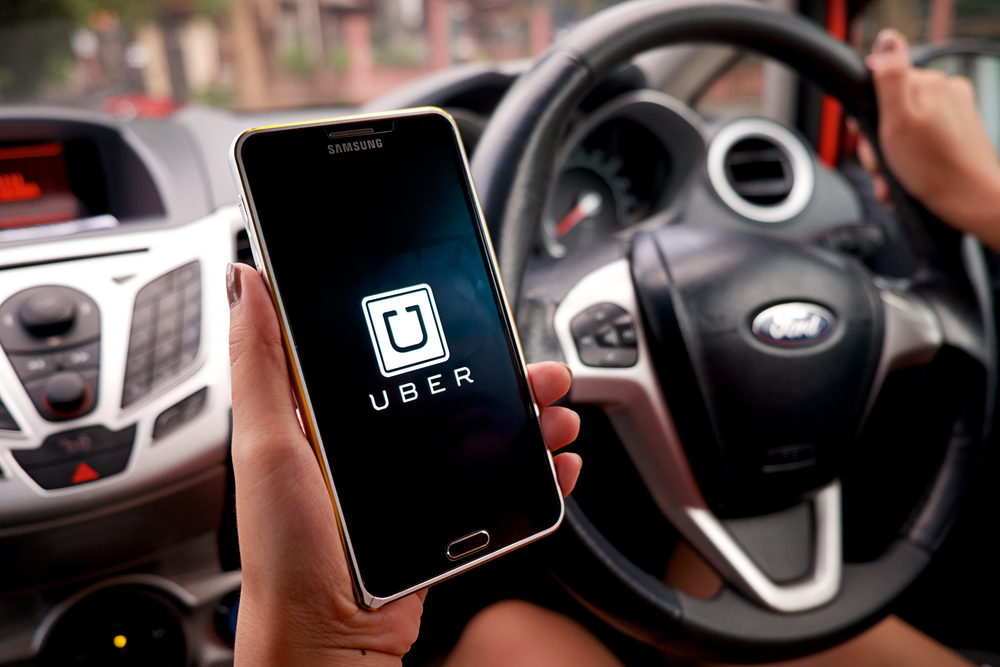
Regulations could stifle startups’ success. Pic: garagestock/Shutterstock
Will tough regulations edge out startup innovation in Asia?
ASIDE from user growth and profitability, innovation is the lifeblood of startups. We wouldn’t have a drastically different way of communicating using mobile phones, hailing cabs, and renting short-term accommodation, if not for the disruptions that startups like Uber, Grab, Airbnb and their contemporaries around the world have introduced.
Around the world and in Asia, there are hundreds of startups that have built platforms for just about anything – food ordering, e-commerce, education, healthcare, and more.
And yet, in most parts of the globe, there have been resistance to innovation, with some coming from the incumbents that wish to protect their business models. For example, taxi companies – even those in major US cities – have lobbied against the entry of Uber, claiming these are unnecessarily eating into their profits. It’s the same case in Asia – and to think that the old way of doing business can sometimes be slow, expensive and cumbersome. In the end, it’s the consumers who are likely to lose out.
SEE ALSO: China: Bitcoin may face tighter regulations, markets slide
Let’s have a look at two striking cases in Asia, which might bode darkly for startups wishing to make their mark in the region.
Uber – death by legislature?

Pic: Prathan Chorruangsak/Shutterstock
In November of 2016, Taiwan’s legislature passed a regulation that sharply increased fines for unlicensed ride-sharing services, which include Uber and its contemporaries. The Legislative Yuan raised the maximum fine for illegal passenger transportation from NTD50,000 to NTD25 million (from US$1,625 to US$812,400).
As reported by Fortune, Uber has been fined around NTD66 million, while its partners (drivers) have been fined a total of NTD20 million.
The provisions of the new law were made effective starting this year, and Uber had pulled out its operations in Taiwan on February 10th, calling it a “pause” in its operations. The company has called out the Taiwanese government for being anti-innovation. “Unfortunately, the government has moved further and further away from embracing innovation and setting the stage for a 21st century transportation policy,” the company wrote in a statement.
SEE ALSO: China: Uber, Didi could lose thousands of drivers as new regulations come in
Other cities are facing different scenarios, although not as drastic as Uber’s in Taiwan. For instance, in the Philippines, local regulators have put a cap on the dynamic pricing policy utilized by transport network services like Uber and Grab, effectively lowering prices even when demand for rides is surging. Regulators have also limited applications for new franchises and rejected nearly half of franchises on process.
Airbnb – stricter property rules, but a possible middle-road

It’s the same scenario in other industry verticals, such as short-term property rental through apps like Airbnb. In Singapore, short-term rentals are actually prohibited by the Urban Redevelopment Authority, which bans sub-letting properties for shorter than six-month periods.
The regulator cites safety and environmental concerns. “Allowing residences to be used for short stays leads to high turnovers of occupants, and gives rise to nuisance and safety concerns,” it states on its website. Violators are liable to be fined up to S$200,000 (around US$141,400) or face a one-year jail time.
While previously a regulatory stipulation, this has recently been legislated into law, which give the URA increased powers in going against suspected violators. The law also gives officers the authority to demand information or documents, take on-site evidence, and conduct forced-entry into homes in question.
SEE ALSO: Airbnb gets jitters from local rivals, ramps up efforts in China
Airbnb, in a statement, has said that the ability to sub-let their rooms or residences can be a big help in paying the bills and expenses. “For a lot of Singaporeans, the opportunity to list their home on Airbnb – for an average of S$5,000 per year – makes a real difference paying off the mortgage, electricity bills and other daily expenses.”
Still, the startup has expressed support for a “common sense approach to regulation that helps these hosts share their extra space.”
Toward this end, it would seem that the URA is considering a new category of private residences that would legally accommodate short-term rentals. “New residential sites can be sold with such an approved use, allowing flexibility for short-term rentals. For existing residential buildings, they would then require planning permission for change of use, and this would be subject to a set of guidelines which URA is looking into,” said Minister for National Development Lawrence Wong.
The takeaway
Startups introduce disruptions and innovations that can potentially change the game for businesses and users alike. The likes of Uber and Airbnb may be putting a dent to the bottom lines of taxi companies, hotels and inns, for example. However, these also provide users an alternative service, which they might find better in terms of quality, price or accessibility.
In addition, enabling users to access such services on-demand and conveniently through their devices, enhances the user experience. The question now is whether governments and incumbents will struggle with innovation, or whether they will adapt with the times with solutions of their own.
READ MORE
- The criticality of endpoint management in cybersecurity and operations
- Ethical AI: The renewed importance of safeguarding data and customer privacy in Generative AI applications
- How Japan balances AI-driven opportunities with cybersecurity needs
- Deploying SASE: Benchmarking your approach
- Insurance everywhere all at once: the digital transformation of the APAC insurance industry
